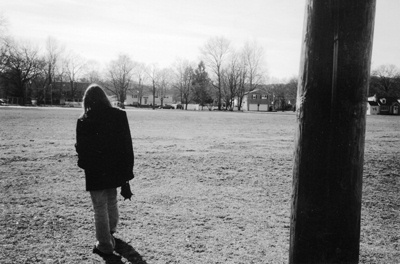All Nonfiction
- Bullying
- Books
- Academic
- Author Interviews
- Celebrity interviews
- College Articles
- College Essays
- Educator of the Year
- Heroes
- Interviews
- Memoir
- Personal Experience
- Sports
- Travel & Culture
All Opinions
- Bullying
- Current Events / Politics
- Discrimination
- Drugs / Alcohol / Smoking
- Entertainment / Celebrities
- Environment
- Love / Relationships
- Movies / Music / TV
- Pop Culture / Trends
- School / College
- Social Issues / Civics
- Spirituality / Religion
- Sports / Hobbies
All Hot Topics
- Bullying
- Community Service
- Environment
- Health
- Letters to the Editor
- Pride & Prejudice
- What Matters
- Back
Summer Guide
- Program Links
- Program Reviews
- Back
College Guide
- College Links
- College Reviews
- College Essays
- College Articles
- Back
Living with the Past MAG
Boston outside the John F. Kennedy Library during the two-day conference on Vietnam and the presidency sponsored by the National Archives and Presidential Libraries. The members of the press are the most noticeable as they carry an air of urgency, snapping open their cell phones and deftly adjusting their camera lenses. Nearly everyone is shivering.
Two friends and I grasp large coffees, anxious to enter the building yet wishing we could climb back into bed and enjoy a relaxing Saturday as second-semester seniors. We eavesdrop on those around us; many are excitedly whispering about the world-famous speakers we’ll be hearing. As the coffee awakens my brain and brings feeling back to my freezing fingers, I begin to understand that what I’ve been invited to attend is not my average history class.
I know little more about Vietnam than the 15 minutes we spent discussing it in AP U.S. History. I did read The Things They Carried for a class, an excellent albeit too short novel detailing the memories that plague Vietnam veterans, yet beyond that, I knew frightening little about one of, if not the most, influential conflicts for the U.S.
The Vietnam memorials, the veterans and the movies are certainly not meaningless to the average teenager, but they simply do not hold the same reality and all-too-real anger and frustration that my parents and teachers feel. We have all seen the blockbuster “Pearl Harbor,” studied the “Shot heard ’round the world,” and at some point memorized the preamble to the Constitution, yet the wounds of Vietnam have still not healed enough to make this war part of our history.
With the war in Iraq, many questions raised during the Vietnam War are once again on the table. As I find myself waiting to hear speakers whom I only vaguely know, I fear that in some ways we are reliving many aspects of that war right now.
Slinging press passes over our necks, we sign in at the press table and find seats in the buzzing room where hundreds have gathered to see Henry Kissinger, Theodore Sorensen, and General Alexander Haig.
Brian Williams (anchor of NBC’s Nightly News) acts as moderator. As the morning passes, one unspoken question lingers: “Where did it all go wrong?” While questions propel the dialogue forward, each panelist seems to struggle to express the reasoning behind decisions made by the President and government during Vietnam.
My pen flies across my notebook but the faces of the speakers often distract me from their words. Even the wrinkles on General Haig’s face betray his stern lines. Doubtless, these men have more knowledge than most about our government’s workings and the meaning of war. Yet emotions cause more than one speaker’s voice to crack and I began to understand that these men live their lives trying to answer questions and yet they don’t know the answers themselves. How could they? Above all else, I realize that the point of this conference is not to share the answers but to discuss the questions.
Among calls to end the war in Iraq, offer more support to end the genocide in Darfur, and address threats to our diminishing natural resources, what we as a country need is more dialogue. I’ve lived most of my life in a socially and politically conscious environment and yet I can’t even begin to understand the vastness of these issues that our nation faces.
As one of the youngest members of that audience, I walked away from that conference not with answers but with more ideas and concerns. General Haig raised fascinating ideas about the draft that I had never considered. Dan Rather offered invaluable insight into the world of journalism and the power of the press to effect change. For teenagers like me who will soon be eligible to vote, we must remember, as the poet Rilke urges us, to live the questions. First, though, we must learn to discover the questions and ask them.

Similar Articles
JOIN THE DISCUSSION
This article has 1 comment.

0 articles 0 photos 12292 comments